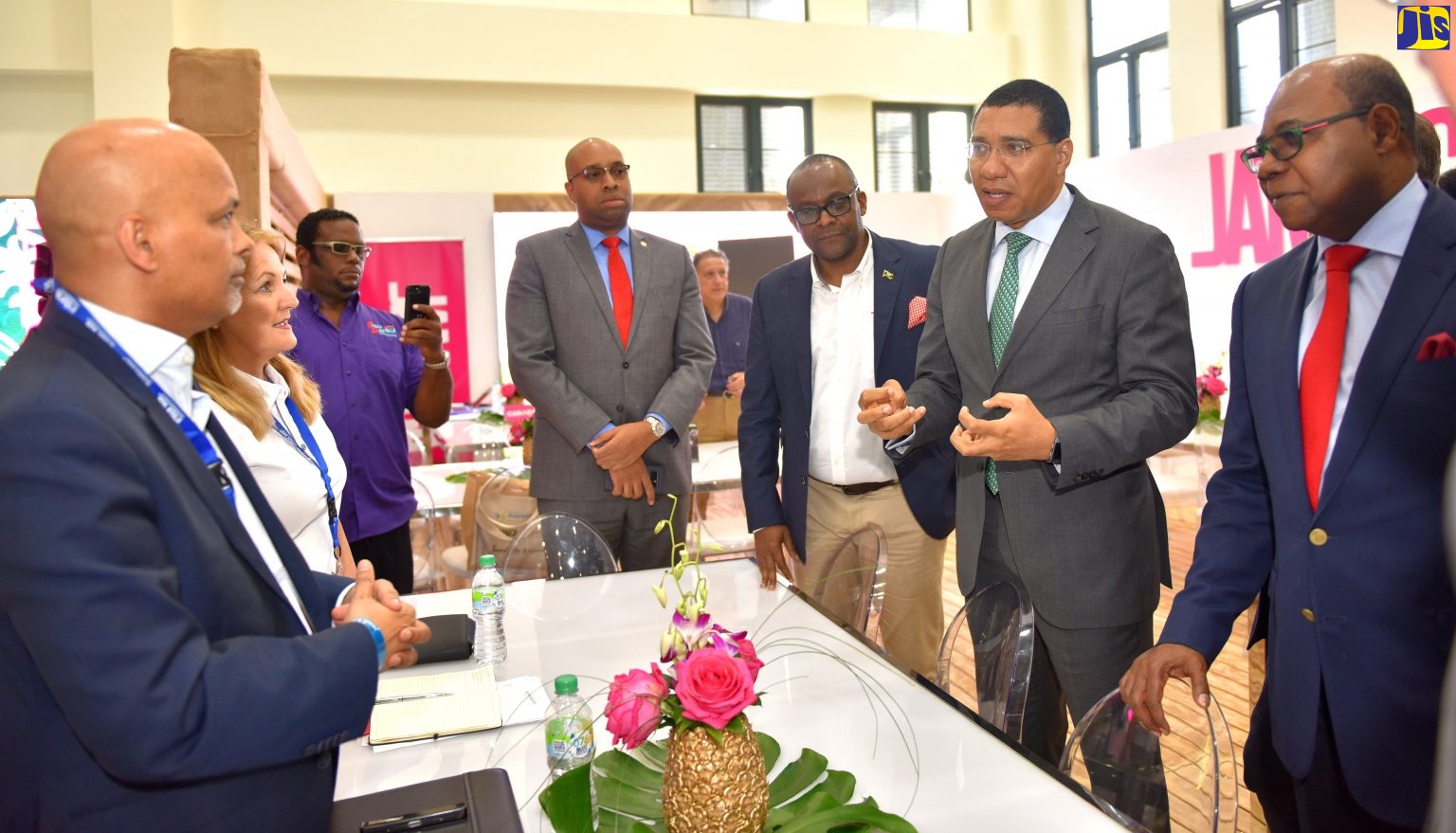PM Says Region Must Guard Against Terrorism and Cybercrimes
By: , January 31, 2019The Key Point:
The Facts
- He was addressing the official launch of the Global Tourism Resilience and Crisis Management Centre, at the Montego Bay Convention Centre, in Rose Hall, St. James, on January 30.
- Mr. Holness emphasised that achieving destination security in the region will not only significantly rely on enforcing measures that will promote the physical security of visitors in resort towns, but will also increasingly rely on the establishment of adequate response systems to those emerging threats.
The Full Story
Prime Minister, the Most Hon. Andrew Holness, says terrorism and cybercrimes are two of the emerging threats that the Caribbean region has to guard against in its quest for sustainable development.
He was addressing the official launch of the Global Tourism Resilience and Crisis Management Centre, at the Montego Bay Convention Centre, in Rose Hall, St. James, on January 30.
Mr. Holness emphasised that achieving destination security in the region will not only significantly rely on enforcing measures that will promote the physical security of visitors in resort towns, but will also increasingly rely on the establishment of adequate response systems to those emerging threats.
“While Caribbean destinations were never traditionally considered to be at risk for terrorist activities, recent terror attacks in tourist destinations, such as Barcelona, Paris, Nice, Tunisia, Egypt, Bohol in the Philippines, Turkey, Las Vegas, Florida, Bali in Indonesia and also in Algeria have shown that we can no longer take the terrorist threat for granted as radical elements are becoming increasingly globalised, with an effective powerful recruiting platform via the World Wide Web,” the Prime Minister argued.
“Any terror attack in the region could result in significant damage to destination attractiveness, divert itineraries from and undermine future travel to affected destinations,” he added.
Mr. Holness said that with nations currently operating in a rapidly digitalising world, threats to destination security have not only become increasingly invisible and intangible, but are also far more severe than ever before.
He noted that the digital space has become the preferred marketplace for tourism-related commerce, pointing out that destination research, bookings, reservations, room service, vacation shopping are conducted online via credit and debit card payments.
“Security no longer means protecting tourists against physical threats, but also means protecting people against cyber threats, including Internet frauds, identity thefts and others,” Mr. Holness said.
“It is, however, true that most Caribbean destinations neither have preventive nor remedial systems to manage cyberattacks,” he pointed out.
The Prime Minister said that in recognising that Caribbean destinations will continue to suffer tremendous losses as a consequence of weak capacity to manage crises, the Caribbean Tourism Organization (CTO) has tasked tourism authorities in the region to take seriously the recommendations of the World Travel and Tourism Council (WTTC), that the region should prioritise the important matters of climate change, disaster degradation and resilience over the next several years.
He noted that to accomplish these objectives, regional authorities have been urged to re-examine policy frameworks geared at enhancing coordination among all stakeholders in tourism.
“This involves harmonising and standardising disaster preparedness and response systems, allocating more resources for research, training, simulation and other capacity-building initiatives and improving intelligence, surveillance, detection and information-sharing capabilities, particularly through the diffusion of ICT,” the Prime Minister said.
Meanwhile, he noted that the Montego Bay Declaration, which emanated from the United Nations World Tourism Organization (UNWTO) international tourism conference which was held in 2017 in Jamaica, called for the establishment of a Global Centre for Tourism Resilience and Crisis Management.
“In keeping with this vision, the conference closed with an announcement that The University of the West Indies, Mona, has been selected as the home for the establishment of the region’s first Disaster Resilience Centre, which will be tasked with creating, producing and generating toolkits, guidelines to enhance and assist destination preparedness, management and recovery from disruptions and crises that impact tourism and threaten economies and livelihoods in the region,” the Prime Minister said.




